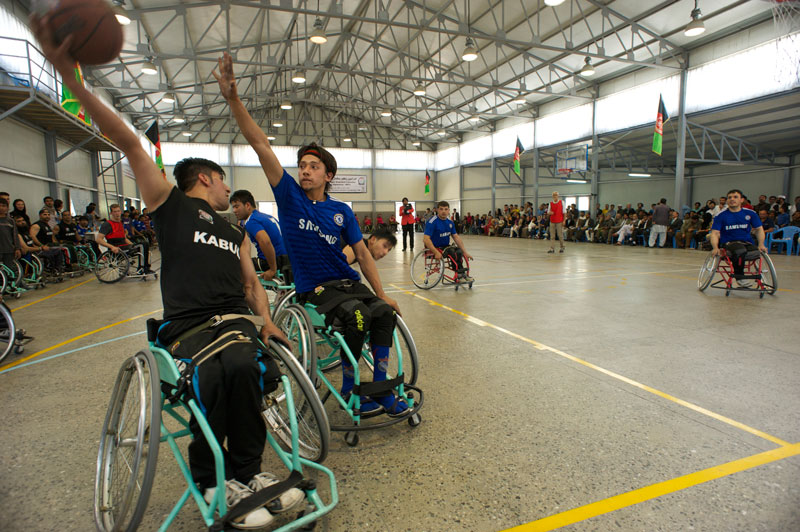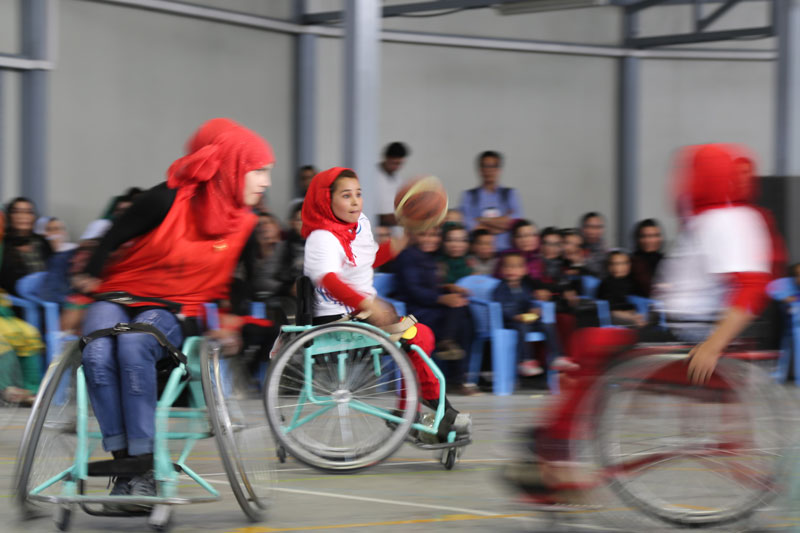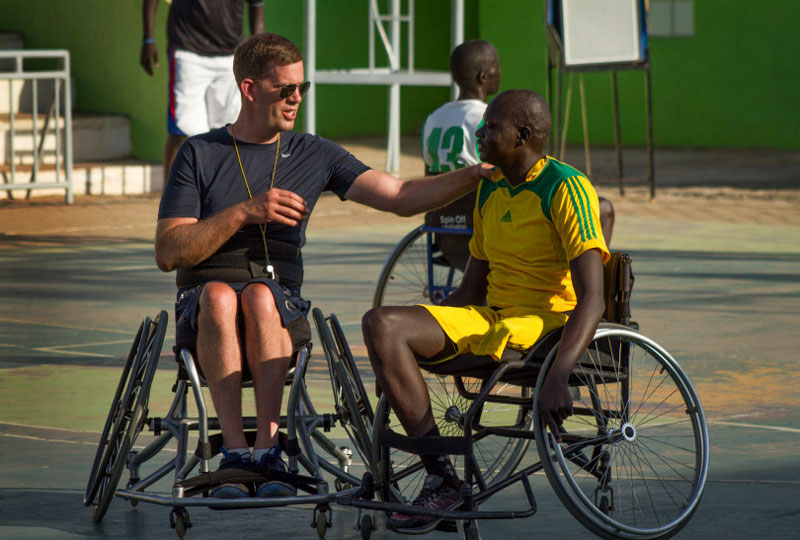When I was first injured in a car accident at 19 years old and became a T6/7 complete paraplegic, I knew immediately that I had a choice to make. I could either focus on the things that I had lost (chiefly, my ability to walk and play sports - I was a high jumper on the University of Oregon's track team when I got hurt) or I could view the injury as a challenge to overcome and an opportunity to view my place in the world in a different way. I was lucky to see those choices so clearly immediately after going through such a massive life change, and it was obvious to me that taking a constructive approach to my physical, mental, and emotional recuperation was the only real option I had. I thought maybe, if I approached it right, I would even have a chance to help other people who would go through a similar situation sometime in the future.
Sports had always played a big part in my life before the accident, and even though I took my track career the furthest, basketball was always the closest to my heart. About three years after being injured, after I'd gone back to school and finished my degree, I was invited by the local National Wheelchair Basketball Association (NWBA) team in Portland, the Wheelblazers, to come out to one of their practices. I immediately fell in love with this new version of my favorite sport. I joined the team and have continued playing in the NWBA ever since.
Wheelchair basketball proved to be the final place of my recovery from my injury. I didn't realize it over those first three years, but I'd really missed competing in sports at a high level, being part of a team, and having a physical outlet on which to focus. In 2009, I was playing for the New York Rollin' Knicks and living in Brooklyn when I received a very unusual request. A new team had just been formed in a small town called Maimana in northern Afghanistan - one of the first teams in the country - and they wanted an American player or coach to teach them how to play this new game they were so excited to learn.

Coaching. In Afghanistan. In the middle of a war. All of those things were way, way outside my comfort zone, but I had a strong feeling that this was a once-in-a-lifetime chance to take the game that had meant so much to me to a group of people who might otherwise never have the chance to experience the empowerment, excitement, and fun of participating in an adaptive team sport like wheelchair basketball. So I went. And not only did it change the perspectives of the 12 players I coached in Maimana for a week, it changed my entire life.
I knew immediately after that trip that I wanted to find a way to go back and bring the game to even more people. Luckily, I had come into contact with the International Committee of the Red Cross (ICRC), a Switzerland-based humanitarian organization that provides physical rehabilitation services, among many others, to physically disabled people in countries affected by war and conflict. The ICRC had an interest in trying to use sports as a way to expand their physical rehabilitation program in Afghanistan, and having heard about my trip to Maimana, they asked me if I'd be willing to help. It was the perfect partnership.

I've been working with the ICRC ever since, and that first small group of players in Afghanistan has now grown to over 500 across the country, 120 of which are women! I have worked with the ICRC to build similar programs in other developing countries including Cambodia, India, Palestine, and South Sudan. I'm now working full-time for the ICRC as its global Disability Sport & Integration Advisor, the first position of its kind the organization has ever had.

After my injury, I never would have guessed that I would end up traveling all over the world introducing disabled people to the power of sports and watching them transform both on and off the court as a result. But by allowing myself to see the possibility in a very painful event and continuing to look for ways to have a positive impact on others, the opportunity to do something truly fulfilling opened itself to me. I couldn't be more grateful.
About the Author
Jess Markt is the Disability Sport & Inclusion Advisor for the International Committee of the Red Cross, as well as the head coach of the Afghanistan Wheelchair Basketball Men's National Team. He grew up near Portland, Oregon and has a B.A. in English Literature from the University of Oregon. Jess now lives in Boulder, CO with his wife Lindy, and coaches the Denver Rolling Nuggets of the National Wheelchair Basketball Association's first division.
Jess writes a blog about his experiences coaching wheelchair basketball in developing countries.
Most of the stories here on Live Quickie were submitted by readers. Do you have a story to tell? We'd love to hear it. Submit your story here.